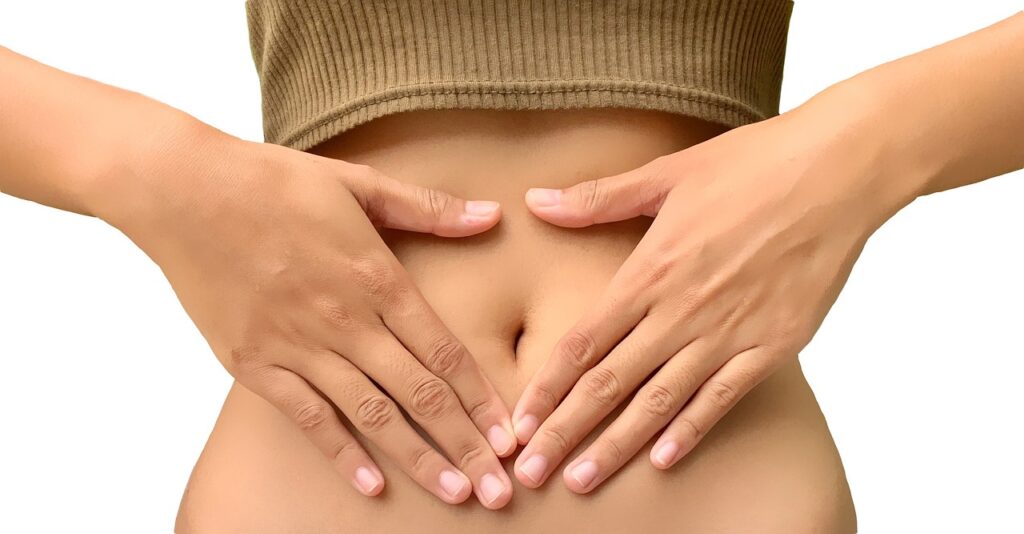Probiotics play a vital role in women’s health, especially for vaginal and digestive well-being. With specific strains, probiotics can support a balanced microbiome, reducing risks of infections like yeast infections, UTIs, and even digestive discomfort.
Why Are Probiotics Beneficial for Me?
Probiotics are beneficial bacteria that play a key role in supporting women’s health, particularly in areas like digestion, immunity, and vaginal health.
Probiotics can help restore balance to the gut microbiome and enhancing the body’s natural immune defenses. The question is: how to find the best probiotics for women that actually work?
Research shows that maintaining a balanced microbiome with probiotics may positively affect both gut and vaginal health in women, creating a foundation for overall well-being.
Probiotics especially designed for women support vaginal microbiome, potentially reducing the risk of infections such as urinary tract infections (UTIs). A study found that probiotics can have a positive impact on treating bacterial vaginosis.
Choosing the Right Probiotic

While probiotics naturally occur in foods like yogurt, kefir, kimchi, and sauerkraut, incorporating additional probiotic strains — such as lactobacilli — through supplements can provide a higher concentration, supporting a healthy diet with more targeted benefits for vaginal health.
When selecting a probiotic, consider potency (CFU count), product form (capsules, powder), and quality brands.
1. Lactobacillus Rhamnosus GG
This is one of the best probiotics for women. It’s known for improving vaginal flora and reducing yeast infections, it’s a go-to for maintaining overall vaginal health. This Lactobacillus is best for women wanting general support for vaginal and digestive health.
2. Lactobacillus Reuteri
This strain promotes a healthy vaginal pH balance and can help prevent bacterial vaginosis (BV) by maintaining a balanced microbiome.
3. Lactobacillus Acidophilus
Lactobacillus Acidophilus is popular for both gut and vaginal health, it supports a balanced flora, which may reduce infections. This probiotic is beneficial for those facing frequent UTIs or digestive issues.
4. Bifidobacterium Lactis
This probiotic helps with digestion and boosts immunity, making it ideal for sensitive stomachs. It’s for you if you’re looking for a gentle, multi-benefit strain for digestive and immune health.
5. Saccharomyces Boulardii
Among the best probiotics for women is Saccharomyces Boulardii strain. It supports gut health and is helpful for balancing yeast overgrowth. Female health experts recommend in case of yeast infections, especially after antibiotics.
How Should I Take Probiotics?
Probiotic supplements are available in various forms, including pills, powders, and even gummies, which can make them convenient and appealing for daily use.
For best results, probiotics should generally be taken consistently over the long term. This helps beneficial bacteria establish themselves and maintain a stable presence in the body, rather than only providing a short-term benefit.
The best time to take probiotics depends on your specific needs and the type of probiotic strain you are using. Generally, it’s recommended to take probiotics with food, as the stomach’s acid levels are lower during digestion, which helps protect the probiotics and allows them to reach your gut more effectively.
Some studies suggest taking probiotics either in the morning with breakfast or before bed, depending on your schedule and convenience.
However, remember that probiotics do not replace a healthy diet, and it’s essential to obtain key vitamins through food.
Some of the best foods for vaginal health include probiotic foods like yogurt and kefir and leafy greens as these foods contain necessary minerals and vitamins that support a healthy balance of bacteria.
5 Signs You Might Need Probiotics

Probiotics are beneficial for maintaining a healthy gut microbiome, but it’s important to recognize when your body may need an extra boost.
There are some signs that might indicate it’s time to introduce probiotics into your routine.
Digestive Issues
Frequent bloating, constipation, diarrhea, or irritable bowel syndrome (IBS) are common signs that the gut bacteria may be out of balance. Probiotics can help restore healthy gut flora and ease digestive discomfort.
Frequent Infections
If you experience recurrent urinary tract infections (UTIs), yeast infections, or bacterial vaginosis (BV), probiotics may help rebalance your vaginal microbiome.
Certain probiotic strains, such as Lactobacillus, have been shown to reduce the recurrence of these infections by maintaining a healthy pH balance in the vaginal area. Probiotics can also be effective in fighting strong vaginal odors.
After Antibiotic Use
Antibiotics can disrupt the balance of beneficial bacteria in the gut and vagina. If you’ve recently taken antibiotics, introducing probiotics can help replenish the good bacteria and prevent issues like diarrhea or yeast infections.
Weak Immune System
Probiotics can boost your immune system by promoting the growth of beneficial bacteria that help defend against harmful pathogens. If you’re frequently ill or suffer from seasonal allergies, probiotics might help strengthen your immune response.
Skin Issues
Skin conditions like eczema, acne, or rosacea can sometimes be linked to gut health. Probiotics may help reduce inflammation and improve skin appearance by balancing the gut microbiome.
If you experience any of these symptoms, incorporating probiotics may help, but it’s important to consult a healthcare provider to choose the right strains and determine the proper dosage for your specific needs.
Bottom Line
Probiotics are a powerful ally for women’s health, offering lasting benefits for both vaginal and digestive wellness. By incorporating those probiotic strains into your daily routine, you’re actively supporting a balanced microbiome that can help prevent common issues like infections and discomfort.
For best results, keep in mind that consistency is key — integrate these strains into your wellness routine and consult a healthcare provider for tailored guidance.



